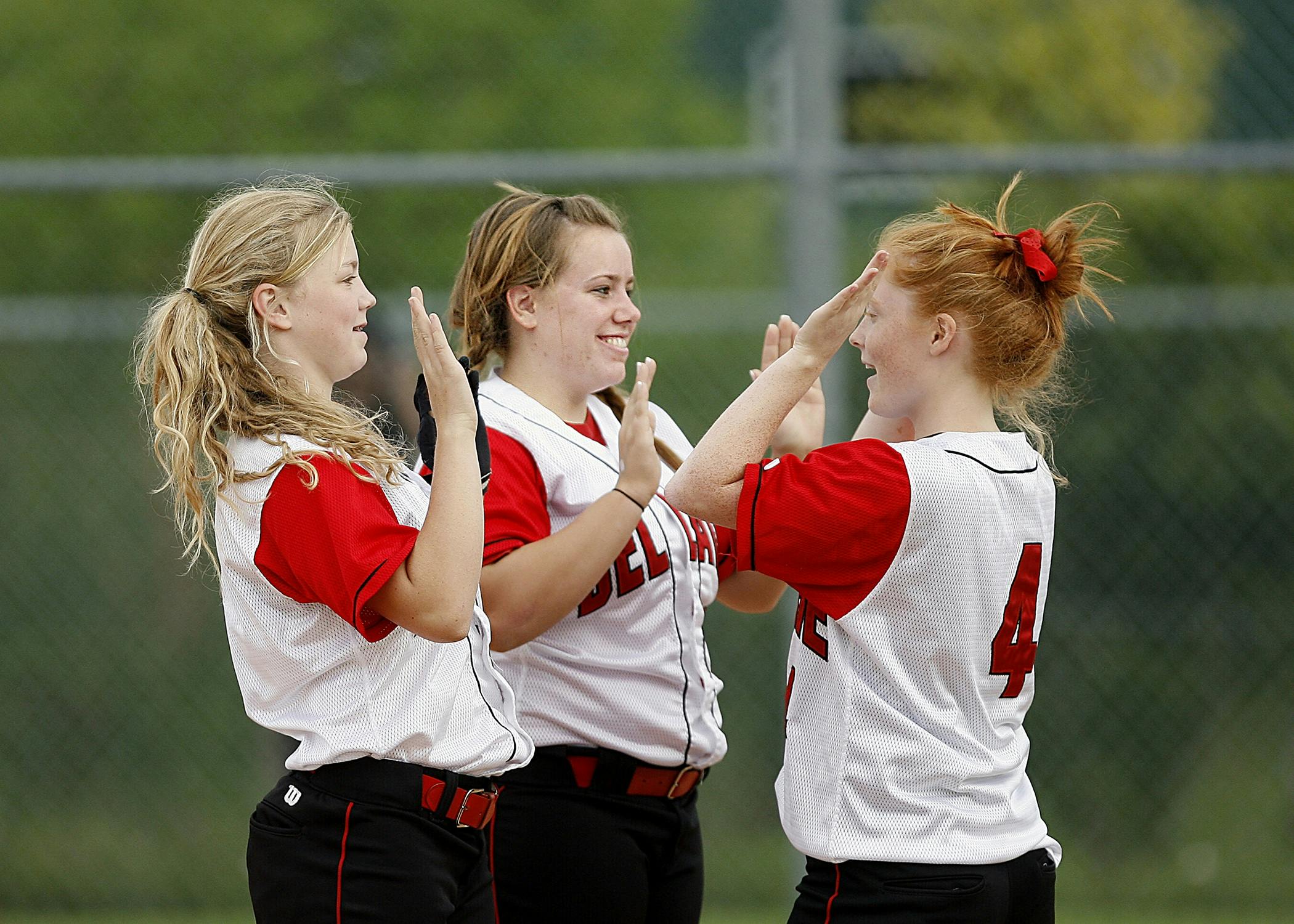Running youth softball tryouts can feel overwhelming, especially for new coaches. You’re tasked with evaluating dozens of players in a short time while creating a positive experience that sets the tone for your entire season. The key to successful tryouts lies in preparation, organization, and having a clear evaluation system that identifies talent while building team chemistry.
A well-organized youth softball tryout sets the tone for the entire season. It’s a chance for players to showcase their skills, coaches to build a strong team, and volunteers to create a positive experience for everyone involved. This comprehensive guide will walk you through every aspect of planning and executing effective youth softball tryouts that help you build the best possible team.
Pre-Tryout Planning and Preparation
Successful tryouts start weeks before players step onto the field. Your preparation determines whether tryout day runs smoothly or becomes chaotic and stressful.
Essential Planning Steps:
- Set clear dates, times, and backup weather plans at least two weeks in advance
- Determine your roster size and communicate this to parents upfront
- Recruit assistant coaches or volunteer helpers to manage stations and paperwork
- Prepare all evaluation forms, clipboards, and equipment before tryout day
- Create a detailed timeline for each drill and activity
Communication with Parents: Send a detailed email to all registered families explaining tryout expectations, what to bring, arrival times, and your evaluation criteria. Include information about when team selections will be announced and how players will be notified. Clear communication reduces anxiety and sets professional expectations.
Facility and Equipment Preparation: Arrive at least 30 minutes early to set up stations, test equipment, and organize your evaluation materials. Make sure that the entire day or days encompass all parts of the game. For softball, you’ll want to make sure that all of your drills evaluate a player’s ability to hit, catch, throw, run, among other skills. Have backup equipment ready and assign specific helpers to manage each evaluation station.
Age-Appropriate Considerations: Beginning with the youth sector, use a more skill-based coaching approach (help players master fundamentals) and emphasize developing a love for the game. Younger players (8U-10U) need shorter attention spans, more encouragement, and simpler evaluation criteria compared to older youth players who can handle more complex drills and longer sessions.
Creating Effective Evaluation Systems
A structured evaluation system ensures fair assessment while helping you identify the right players for your team’s needs.
Comprehensive Skill Assessment Areas: Your evaluation should cover five core areas: hitting ability, fielding skills, throwing accuracy and strength, base running speed, and game awareness. Create a simple scoring system for each area, such as a 1-5 scale, that allows you to quickly rate players during drills.
Sample Evaluation Categories:
- Hitting: Contact consistency, bat speed, stance, swing mechanics
- Fielding: Glove work, footwork, range, reaction time to ground balls and fly balls
- Throwing: Arm strength, accuracy, proper mechanics, quick release
- Base Running: Speed, sliding technique, base awareness
- Attitude/Coachability: Hustle, listening skills, encouragement of teammates
Documentation and Forms: Youth softball leagues can utilize softball tryout evaluation forms to assess young players’ skills and abilities during tryouts. Coaches and evaluators can easily record and rate players’ performance in various aspects, such as throwing, fielding, hitting, and base running. Use standardized evaluation forms that include player name, jersey number, and clear rating scales for each skill category.
Multiple Evaluator System: Have different coaches evaluate different stations to get varied perspectives on each player. This reduces bias and provides more comprehensive assessments. Assign your most experienced coach to hitting evaluations, as this is often the most challenging skill to assess quickly.
Objective vs. Subjective Measures: Balance measurable skills (throwing distance, running times) with subjective observations (hustle, attitude, leadership potential). Hitting: 5 bunts. Lay it down well, 1 point. Don’t lay it down, 0 points 10 cuts. Line drive, 3 points. Hard grounder or deep fly, 2 points. Weak fly ball or weak grounder, 1 point. Simple scoring systems like this help maintain consistency across evaluators.
Essential Tryout Drills and Activities
Your drill selection should efficiently evaluate all necessary skills while keeping players engaged and moving.
Warm-Up and Initial Assessment (15-20 minutes): For youth softball players, it is best to lead your team in a quick stretch followed by a warm-up toss. Go out with them and instruct them on what to do, as this can very well be their first time warming up for softball. Start with dynamic stretching, then partner throwing at increasing distances. This helps players settle nerves while giving you initial impressions of throwing mechanics and arm strength.
Hitting Evaluation Stations: Set up multiple hitting stations using tees, soft toss, and live pitching (age appropriate). Give each player 8-10 swings at each station, focusing on contact quality rather than power. Ensure players maintain a proper stance, hold the bat with a comfortable grip, and keep their eye on the ball at all times. Look for consistent contact, proper swing mechanics, and bat control.
Fielding Assessment Drills:
- Ground Ball Series: Roll balls to each position, evaluating footwork, glove work, and throwing accuracy
- Fly Ball Catching: Test tracking ability and catching technique with balls hit to different areas
- Double Play Turns: For older players, evaluate quickness and accuracy in turning two
- Situational Fielding: Create game-like scenarios to assess decision-making under pressure
Base Running Evaluation: Time players running to first base from home plate, and evaluate sliding technique at second base. For younger players, focus more on proper running form and hustle rather than pure speed. Include a situational base running drill where players must read coaches’ signals and make smart decisions.
Pitching and Catching Assessment: If evaluating for these specialized positions, create separate stations with experienced catchers and coaches. Evaluate mechanics, accuracy, and composure under pressure. For catchers, test throwing to second base, blocking skills, and communication abilities.
Managing Tryout Day Logistics
Smooth logistics create a professional atmosphere and allow you to focus on evaluation rather than crowd control.
Registration and Check-In Process: Create a streamlined check-in system with pre-printed name tags or jersey numbers. Have parents sign liability waivers and verify contact information. Assign jersey numbers systematically to make tracking easier during evaluations.
Station Rotation System: Design a rotation that keeps all players active while preventing long wait times. Use a whistle system or timer to signal station changes every 12-15 minutes. Post rotation schedules prominently so players and parents know what to expect.
Parent Management: Designate specific viewing areas for parents and communicate your policies clearly. Focus can look like making eye contact with the coaches when they are giving directions, focusing on the game or drill happening, and being on your toes ready for anything. Explain that you need players to demonstrate these qualities without parental coaching from the sidelines.
Weather Contingencies: Have indoor alternatives planned or clear postponement procedures. Communicate weather decisions at least 2 hours before scheduled start times. If using a shortened format due to weather, prioritize hitting and fielding evaluations over conditioning drills.
Safety Protocols: Ensure adequate spacing between stations, have a first aid kit accessible, and assign a designated adult to monitor overall safety. For younger players, provide extra supervision during batting practice and base running drills.
Efficient Time Management: Stick to your schedule but build in small buffers for transitions. If running behind, cut conditioning drills before cutting skill evaluations. Keep water breaks short but frequent, especially in hot weather.
Team Selection and Communication
The evaluation and selection process continues after players leave the field.
Post-Tryout Evaluation: Gather all coaches immediately after tryouts to compile evaluations while observations are fresh. Rank players by position needs and overall ability, considering team chemistry and attitude factors alongside pure skill.
Difficult Decisions: When choosing between similarly skilled players, consider factors like coachability, attitude, and potential for improvement. Sometimes a player with slightly lower current skills but great attitude and work ethic becomes more valuable than a talented player with behavior concerns.
Notification Process: Contact all families with honest communication. Give a clear timeframe for when players should expect to hear back. For players not selected, offer specific feedback about areas for improvement and encourage continued participation in developmental programs.
Building Your Final Roster: Consider team balance across positions, having adequate depth at key positions like catcher and pitcher. Factor in player availability for practices and games, and ensure you have players who can fulfill leadership roles.
Conclusion
Running successful youth softball tryouts requires thorough preparation, fair evaluation systems, and clear communication with players and families. Focus on creating a positive experience that evaluates all necessary skills while building excitement for the upcoming season. Remember that your tryout process reflects your coaching philosophy and sets expectations for how you’ll run your team.
The key to great tryouts is balancing efficiency with thoroughness. Players should leave feeling they had a fair opportunity to showcase their abilities, regardless of whether they make the team.
Connect with Experienced Coaching Support
Running effective tryouts is just the beginning of a successful season. If you need additional coaching support or specialized instruction for your team, Athletes Untapped makes it easy to find qualified softball coaches and instructors in your area for supplemental training sessions. Find local softball coaches.




